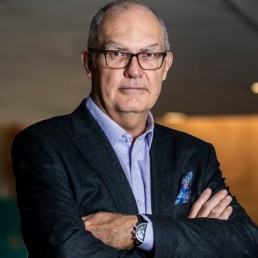Sustainability is a word on everyone’s lips and the vast majority of businesses are looking to make the most of their green credentials. But whose role is it? Who should take responsibility within organisations for sustainability initiatives? Is it the job of the CIO and if not, who should pick up the green mantle?
That was the theme of the regular IDC Euro Peer Group discussion. IDC’s Marc Dowd started the discussion by alluding to IDC research which suggested that 20% of sustainability projects were run by CIOs (as a guide, 24% were run by CEOs). Is that a fair reflection of the situation, he asked.
One participant immediately said that it was “definitely” the CIO’s job, pointing out the various initiatives that he’d been involved with. It was a theme picked up by a CIO from the construction sector who explained how sustainability was “a huge thing in the construction industry”.
He went into a lot more detail about the situation, explaining that a good deal of attention in this regard was paid to construction projects, many of which were not as green as described.
This, he said, was one of the challenges. A company could have the best of intentions but those would only last if their partners and suppliers were going down the same path.
Construction wasn’t the only industry that was identified as a key player in the debate. A speaker from the agricultural sector pointed out how important sustainability was to the industry. He said that it was important in two ways: among agricultural firms themselves but also by helping farmers use their fields more efficiently and increase their output.
Dowd highlighted another issue faced by organisations: how sustainable were companies’ refresh policies. Were organisations buying more devices than were strictly needed?
One participant said that his organisation had a strict three-year refresh but all old PCs were donated to Action for Children. This was a theme picked up by other speakers; there was a recognition that equipment could be recycled – one cited the need by schools and colleges for spare PCs for children who were home working during the lockdown. There was definitely a sense that PCs were no longer being dumped as companies looked for other options.
One participant raised the point that this drive on sustainability was giving CIOs more of a voice at board level. If companies wanted to emphasise their green credentials, then it was important to listen to voices who had much of the responsibility for sustainable projects.
There were other ways of being sustainable, as some speakers were keen to explain. “Follow me printing is a good example,” said one. “You can show that you’re not going to waste paper.” He added that there was more to sustainability than saving energy, saving paper was important too.
There was some agreement that CIOs need to shout more about all the ways of being sustainable, there was need to share initiatives so that others could follow. As one participant put it, “It’s about leadership; it’s about showing a sense of responsibility.”
But, as was then pointed out, all the discussion so far had concentrated on the developed world and there geographic differences to take into account. The emerging economies had different mindsets. One speaker told of his experiences in Peru where the bureaucracy was such that every piece of paper had to be stamped multiple times. “We have to understand the problems,” he said, “the issues vary, they won’t be the same problem in every country.”
Ultimately, there was solid agreement that companies did need to work to make their industries more sustainable and that CIOs had a major part to play in that process.

